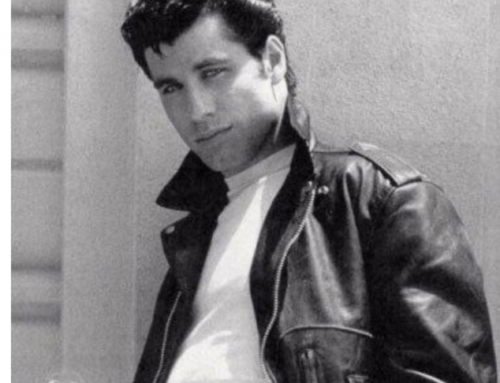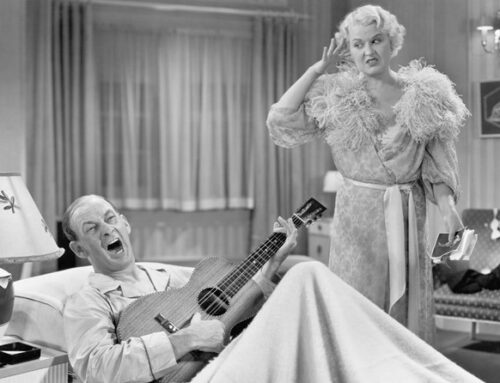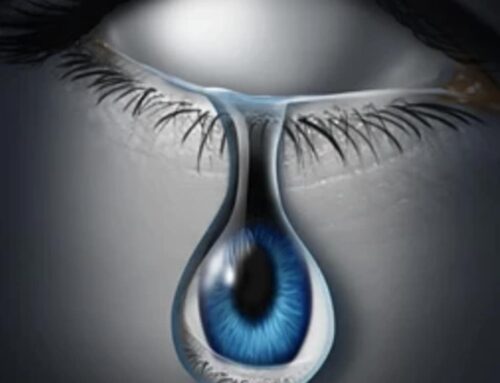Taking over someone’s life is not easy. Start with the passwords.
As I walked into the back corner bedroom, I paused for a moment, I gazed at the pink and purple shag carpet I grew up with, man that carpet had seen some years. I looked around at the several pieces of old exercise equipment crammed into the small space; the bike from the 80’s, the treadmill which probably hadn’t seen action in years, and the Body-by-Jake which made me chuckle. The acknowledgment of how much stuff was in that room felt intimidating. I pulled my gaze back, looked at the desk and reminded myself why I was there. I took my feeling of overwhelm, applied some emotional strategy, and stuffed it to the side. Next thought, as I looked upon 2 conveniently placed plastic organizers sitting at either side of his desk, “hopefully there is paperwork in those drawers.”
This was not something I was looking forward to, but I was on autopilot. The 25 years in debt collection were paying off again with real life. I knew they had a power of attorney and a will somewhere. I understood what was needed legally to help them. I remembered mom telling me about it. But where is it? And what about the bank accounts — who did they bank with? Dad was a little savvy for being 80, he did online banking. I was grateful. But, how the hell do I access it? Where do you pay the utilities at? Do they have credit cards that need paid? What about the Wi-fi — oh please tell me they have Wi-fi.
Then, I had a thought that took my breath away, “where the hell are the passwords?” Where is the laptop? The surrealness settled down like a blanket recently thrown on a bed. I felt incredibly sad. “SCREW COVID.”
Where is the manual on how to take over someone’s life? I mean, sure, I bet there’s a life coach out there somewhere specializing in end-of-life circumstances with family, but amid overwhelm and grief I wasn’t capable of googling LIFE COACH DAD DYING OF COVID — help!!! I was emotionally numb and focused on taking care of EVERYTHING. It felt big. Still does. No punt intended, but it felt like there were a lot of deadlines. Dad was in the hospital, the prognosis not good. Mom not only was positive for COVID, but she was showing signs of early memory loss, likely dementia, it was obvious she was unable to tend to the business of the house. She was easily confused. That alone was sad, because when I was growing up, she was the one that took care of the finances. Dad hunted, fished, and worked. He was responsible for the household income. Mom paid the bills. It was simple. They had a system. Suddenly, I felt overcome with the wariness of the situation on behalf of my dad. He needed help but could not ask his daughters for it. What I would not have given to know beforehand what they were experiencing in their later years. Now, I was thrown into taking it all in, a massive download of familiarity all happening within a few hours. He had been living with someone who was losing her mind, and her memories. His daughters did not have a clue to what extent. He was not the type of man to call and talk about it. He would not ask for help. He would mention now and then mom getting confused, he downplayed it. It was obvious to me he had been hurting emotionally. How lonely that must have felt.
The humility and vulnerability that coincides with being elderly appears to require more courage and acceptance than any other season of life. That is and was my continued take away from my experience of losing my dad suddenly to COVID and embracing the truth that my mom was experiencing the early signs of dementia.
So now what? Find the passwords and dig in. Passwords are so private. They are unique to us. Do you take the time to follow the expert’s suggestion to change them every 30 days? Do you come up with off the wall characters such as **)#!TTWHDW and then type them in, hoping to get the green check mark next to all the requirements. Do you autosave in Google or attempt to remember them all? Or do you just think of your childhood pet and type in his birthday and name with an exclamation point? As I sat at that desk, staring at the pink and purple shag carpet, I hoped he did the latter. The search began. I began to look for the hidden passcodes which would begin to open the door to their life. It felt like an inner conflict to seek someone’s passwords. A violation of sorts.
The passwords I found defined what mattered to him the most. They provided me insight on how my dad organized his thoughts. In a weird way, I felt like I was getting to know him all over again through his passwords. It was insider information on him. His loves. His values. His passwords reflected what truly is important in this thing we call life. I knew my sister and I were special to him because he used details about us for his passwords. I knew he treasured anniversaries and birthdays, because those numbers were reflected within his passwords. He always did confuse me and Brenda’s birthdays. That memory felt bittersweet. Humor mixed with sadness. Me, Brenda, Mom, and Dad. The four of us. My mind chased down the oddities we valued as a family. Mom and I had blue eyes. Brenda and dad green eyes. Me and dad left-handed. Mom and Brenda right-handed. Mom and Brenda under five feet tall, me and dad both made it past five feet. As I witnessed my scattered thoughts, I honored the surrealness of the situation.
Dad was simple and he was a student at the core. He chose to keep learning new things. I respected that about him. His simplicity was mirrored in the rugged, worn-out notebook that held details regarding the household finances. Details he wrote in pencil. The student was reflected in the methodical way in which he had wrote down instructions; 1. Type the URL 2. Pull up “log in” 3. Type the id, then the password. I do not know why witnessing the simplicity of his experience hurt, but it did. What was it like for someone from his generation to learn online banking? I wanted to hug him again, congratulate him on his efforts. Thoughts would rummage through my mind like “that was the last instruction he will likely ever write” or “he loved me and Brenda, he used our names in a few places.” I teared up when I found the page in the notebook outlining everyone’s birthdays and addresses. His handwritten attempts to remember to acknowledge everyone’s special day. I chuckled at the ease with which Facebook does that for us now, and we do not even have to try to remember. I respected the old way of writing it down and efforting at it because people meant something to you vs. the non-cholent way of clicking “happy birthday” only because you got a reminder on your phone.
My sister and I are not unique in our experience of losing an elderly parent and being catapulted into someone else’s world. Most people will experience this in their lifetime. The pandemic left droves of us in this situation. For me, my mom and dad felt like strangers as I regrettably searched for how they lived their lives. I realized they were undividedly separate from me, and they gave me life. They lived their life similarly, but their enjoyments were opposite of mine. They liked to gamble, not my cup of tea. They liked watching golf. I do not. They consumed themselves with the media and controversary. I purposely refuse to watch the news. Yet, at the end of the day, when our family was facing death and we were losing one of our team, none of our differences mattered. I was grateful we did not have emotional division amongst our family. The years although separated us physically, we had a core principle of loyalty to one another. In each our own way we supported one another through the tough times we individually had gone through. We did not alienate one another. Our home had been wrecked by alcoholism for years, especially the formative years of my sister and I, and the four of us still stood strong in the recovered part of alcoholism. There were no leftover resentments crucifying our family. I recognized mom and dad did a respectable job of setting that example for Brenda and me. Before I personally recovered from my alcoholism, I used to think they were in denial, they didn’t talk about the problem enough, then I learned they had recovered and simply had chosen to move on, to keep on keepin on. As I surrendered to that bittersweetness of meshing the heartfelt memories with the current tragedy, I felt it my greatest accomplishment to show up and help them.
The true password in our family was and always will be strength. As mom, Brenda and I did our utmost to help dad at his most vulnerable time in his life, I knew his example of strength was coursing through each one of us. That strength would continue to be the foundation to see us through the devastation of COVID, it would see us through witnessing mom having to surrender her home, her memory, her driving, and her husband of 57 years within a short time, and it would see us through undeniable hurdles for my sister and I as we faced unloading a house of 40 years, being medical and financial advocates for our parents, all while enduring our individual grief and heartache of it all.
COVID brought its own strength, its own relentless energy which devastated millions, however the human spirit that continues to survive, adapt, and overcome life’s hurdles will forever be stronger than any damn virus.
Mom and dad thank you for transmitting your strength to your daughters. You truly taught us what real strength is; it’s the showing up regardless of how you feel to help someone, no matter what the cost is personally. It is a display of selflessness for your fellows.
Love, Susan



